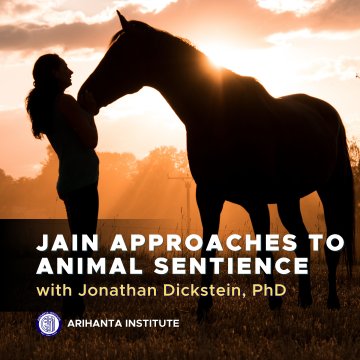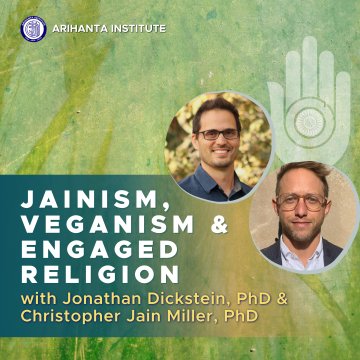
Jonathan has published in a wide array of interdisciplinary journals on topics such as veganism and politics, yoga and diet, Jain veganism, and the ethic of nonviolence (ahiṃsa). Jonathan considers himself a scholar-practitioner, having spent many years not only in libraries but also in public advocating for justice for both humans and nonhumans alike.
Research
PhD in Religious Studies, University of California-Santa Barbara
MA in Religious Studies, University of Colorado-Boulder
Dr. Dickstein is a specialist in the premodern religious traditions of South Asia. His three areas of research span Yoga Studies, Religious Studies, Critical Animal Studies, Environmental Studies, Diaspora Studies and Comparative Ethics.
Dr. Dickstein’s previous research involved issues of theism, agnosticism, and atheism in yoga traditions. Critical questions involved the existence and role of a supreme deity in effecting a practitioner’s eventual achievement of the goal of liberation. Dr. Dickstein is finalizing an article on theism in the Pātañjala Yogaśāstra and its relevance for the beliefs, sensibilities, and aims of contemporary practitioners. He sees this work as broadly informative on how practitioners in Jain and non-Jain yoga traditions reconcile ancient views on soteriology and ethics with current atheistic trends in yoga practice and yoga-inspired practical ethics.
Currently focused on Animal Studies, Dr. Dickstein’s doctoral work investigated ancient Indic perspectives on domesticated animals, examining animal taxonomies and their relationships to regulations on ritual sacrifice and dietary practice. Ancient Jain texts offer a unique viewpoint on this topic given their emphasis on the sense-faculties of various living beings, and sentience as the basis for human ethical responsibilities towards animals and the environment. In his current scholarship, Dr. Dickstein draws parallels between this Jain viewpoint and contemporary arguments in moral philosophy that reject anthropocentric and species-centric approaches to animal and environmental ethics.
Dr. Dickstein will soon initiate a new research project that connects the long history of animal rescue and caretaking in Jainism with animal rights advocacy in the United States that also promotes the rescue and caretaking of exploited animals. Using an animal sanctuary in Colorado as the field location from which to generate this discussion, Dr. Dickstein will put Jainism’s rich history of caring for animals in conversation with the direct action tactics employed by animal activists to rescue animals from sites of abuse.
Publications
“Veganism as Left Praxis.” Capitalism Nature Socialism 33, no. 3(2022): 56–75.
“Review: Sacred Cows & Chicken Manchurian: The Everyday Politics of Eating Meat in India by James Staples.” Himalaya Journal 40, no. 2 (2021): 164–166.
“Jain Veganism: Ancient Wisdom, New Opportunities.” Religions 12, no. 7 (2021): 512.
“Animal Abuse in Modern Yoga Gastropolitics.” Sacred Matters Magazine, May 16, 2021.
“The Ism in Veganism: The Case for a Minimal Practice-Based Definition.” Food Ethics 6, no. 2 (2021).
“Why Aren’t We All Boycotting Factory Farms?” Sentient Media, October 5, 2020.
“Ahiṃsā.” In La Pensée végane. 50 regards sur la condition animale, ed. Renan Larue. Paris: Presses Universitaires de France, 2020.
“The Strong Case for Vegetarianism in Pātañjala Yoga.” Philosophy East and West 67, no. 3(2017): 613–628.




